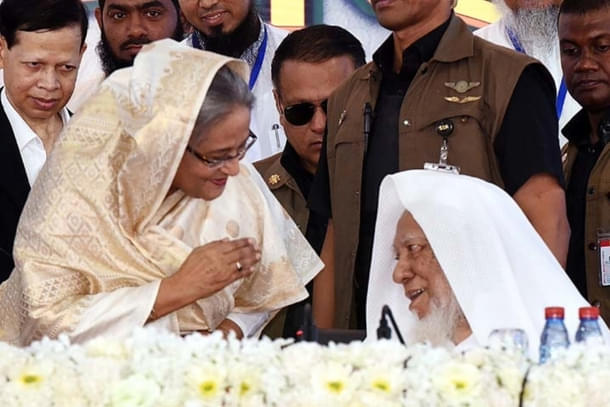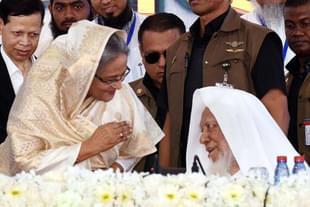World
After Violence In Student Protest, Bangladesh's 14-Party Coalition Enforces Ban On Jamaat-e-Islami: Here's All About It
Bhuvan Krishna
Jul 30, 2024, 01:29 PM | Updated 01:29 PM IST
Save & read from anywhere!
Bookmark stories for easy access on any device or the Swarajya app.


In a move likely to cause turmoil, the ruling Awami League-led 14-party regime in Bangladesh has announced its decision to ban the radical group Jamaat-e-Islami and its student wing, Chhatra Shibir.
The reason stated for this decision is Jamaat's involvement in hijacking a student protest, which resulted in the deaths of over 200 people according to a report by The Economic Times.
Notably, the entire Jamaat leadership had opposed Bangladesh's Independence movement and supported the Pakistan Army in 1971 which has also been a reason for its animosity with Awami League.
Earlier, the conservative political organisation was also barred from contesting elections after a high court verdict in 2008. Despite being banned from the electoral process, it continued its political activities by supporting the Bangladesh National Party-led opposition alliance.
The decision was made during a meeting of the alliance chaired by Prime Minister Sheikh Hasina at her residence.
"The alliance has agreed to ban Jamaat-Shibir politics on the charges of killing common people and destroying state assets by creating various issues and carrying out militant attacks," AL General Secretary Obaidul Qader told reporters in Dhaka.
Rashed Khan Menon, a key leader of the alliance and Workers Party supremo, stated, "We unanimously decided to ban Jamaat-Shibir. Now it is the responsibility of the government to implement it."
Other main leaders, including Awami League General Secretary Obaidul Quader, Jatiya Samajtantrik Dal President Hasanul Huq Inu, Workers Party of Bangladesh President Rashed Khan Menon, Toriqat Federation Chairman Syed Najibul Bashar Maizbhandari, and General Secretary of Bangladesh Sammabadi Dal Dilip Barua, also lodged their presence in the meeting.
Jamaat's chequered history is also highlighted by International Crimes Tribunal rulings, which indicted Jamaat for its role in the 1971 atrocities.
Some judgments indicated that Jamaat was instrumental in forming the Pakistani occupation army's auxiliary forces, such as Al-Badr, Razakar, Al Shams, and the Peace Committee, which were actively involved in committing atrocities against fellow Bengalis.
Bhuvan Krishna is Staff Writer at Swarajya.





